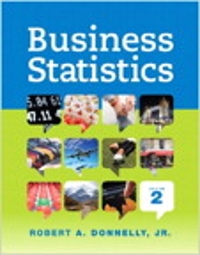Question
Please JUSTIFY or agree/disagree with the writer or answer the following. And please do mention if you are justifying,agreeing,disagreeing or answering the above. Thanks The
Please JUSTIFY or agree/disagree with the writer or answer the following. And please do mention if you are justifying,agreeing,disagreeing or answering the above. Thanks
The note should have intext citations. For example, anything with numbers or quotes per paragraph. The intent citation just needs to be the Author's last name and year it was published. Please also include REFERENCES. Thanks
xxxxxxxxxxxxxxxxxxxxxxxxxxxxxxxxxxxxxxxxxxxxxxxxxxxxxxxxxxxxxxxxxxxxxxxxxxxxxxxxxxxxxxx
- Workforce Scheduling Problem: This problem revolves around creating efficient and fair work schedules for employees within a department. The challenge is to allocate shifts, tasks, and responsibilities while considering factors such as employee availability, skills, seniority, and labor laws. Ensuring that the right number of employees are available during peak and off-peak hours, holidays, and weekends is essential. Additionally, minimizing overtime and managing employee preferences or requests can make this problem complex. Automated scheduling software is often used to address these issues and balance the needs of both employees and the organization.
- Workforce Blending Problem: In a diverse workforce, blending involves assigning the right mix of employees with various skills, experience levels, and roles to optimize overall productivity and efficiency. For instance, in a call center, it means assigning a mix of experienced agents to handle complex issues and newer agents for routine inquiries. This requires considering skill sets, training needs, and performance metrics. Balancing employee morale and development with operational goals is crucial in solving this problem.
- Logistics in Human Resources: In HR, logistics problems typically revolve around managing the flow of people, information, and resources. This includes on-boarding and off-boarding employees, organizing training sessions, conducting interviews, and ensuring timely communication of HR policies and procedures. The challenge is to streamline these processes, reduce bottlenecks, and optimize the allocation of HR resources. For instance, scheduling interviews efficiently to minimize delays or ensuring all necessary equipment and materials are available for training sessions are part of the logistics challenges faced by HR departments.
Addressing these problems efficiently requires the use of technology, data analysis, and careful consideration of employee needs and organizational goals. Effective solutions can enhance employee satisfaction, reduce costs, and improve overall HR department performance.
In workforce scheduling, the goal is to minimize costs while maintaining adequate staffing levels and adhering to labor regulations. Workforce blending seeks to maximize productivity by assigning employees with the right skills to tasks and balancing morale and efficiency. HR logistics focuses on streamlining processes and resource allocation to minimize delays and ensure efficiency. Optimization aims to balance operational efficiency, cost reduction, and employee satisfaction in each case based on the specific problem and organizational priorities.
References:
Heimerl, C., Kolisch, R. Scheduling and staffing multiple projects with a multi-skilled workforce.OR Spectrum32, 343-368 (2010). https://doi.org/10.1007/s00291-009-0169-4
Step by Step Solution
There are 3 Steps involved in it
Step: 1

Get Instant Access to Expert-Tailored Solutions
See step-by-step solutions with expert insights and AI powered tools for academic success
Step: 2

Step: 3

Ace Your Homework with AI
Get the answers you need in no time with our AI-driven, step-by-step assistance
Get Started


